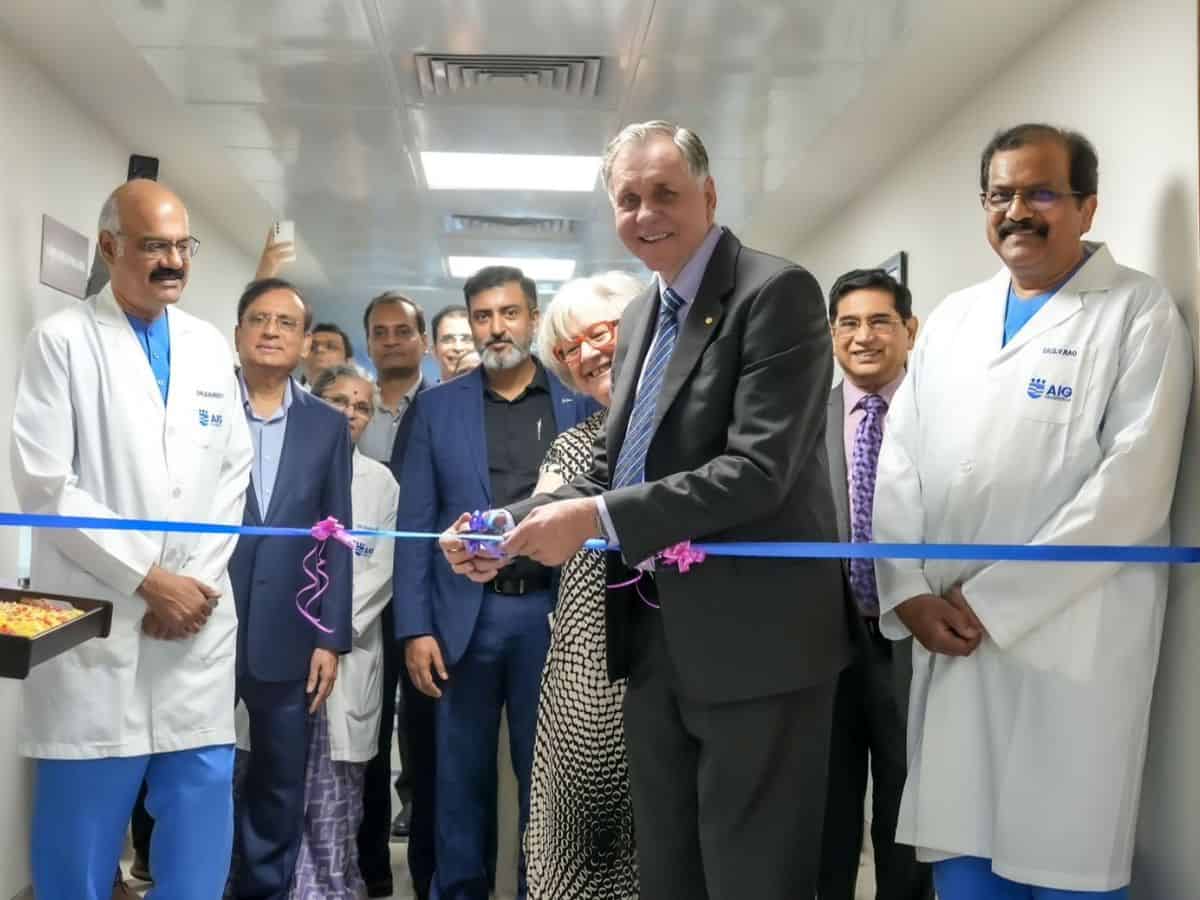
Hyderabad: Dr. Barry Marshall, a Nobel Prize laureate, inaugurated the Barry Marshall Center for research on Helicobacter pylori (H. pylori) at the Asian Institute of Gastroenterology (AIG) in Gachibowli, Hyderabad, on November 8, 2024.
This center aims to address the growing concern over the prevalence of H. pylori infections, which affect approximately 50-60% of India’s population and are linked to serious gastrointestinal issues, including stomach ulcers and stomach cancer.
Concerns of H.pylori infections
During the event, Dr. Marshall highlighted that unsanitary conditions and contaminated drinking water are significant contributors to the spread of H. pylori.
He noted that while 80% of those infected may not exhibit symptoms, others can suffer from nausea, abdominal pain, and gas. He warned that a small percentage of individuals may develop stomach cancer over time, particularly if there is a family history of the disease.
Research initiatives
Dr. D. Nageshwar Reddy, chairman of AIG Hospitals, described the establishment of the center as a major advancement in India’s healthcare landscape.
He pointed out that H. pylori poses a significant public health challenge, with its prevalence surpassing that of diabetes in the country. In preliminary studies conducted at AIG, out of 700 patients presenting with gastrointestinal symptoms, 300 were found to be infected with H. pylori, emphasizing the urgent need for focused research and treatment strategies.
Treatment and Prevention
H. pylori is primarily transmitted through contaminated food and water or direct contact with saliva or faeces from infected individuals.
While many people remain asymptomatic, those who do develop symptoms typically suffer from gastritis or peptic ulcers. Treatment generally involves a combination of antibiotics and proton pump inhibitors to eradicate the bacteria and reduce stomach acid production.
Dr. Marshall stressed the importance of early testing for individuals with a family history of stomach cancer or those experiencing gastrointestinal issues.
Preventative measures include maintaining good hygiene practices such as regular hand washing and ensuring access to clean drinking water.



